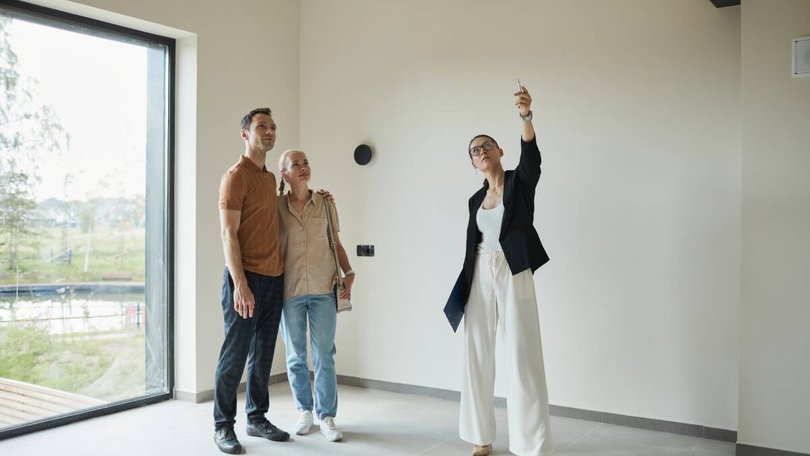Do you need to own a home to be financially secure?

If you asked me this question five years ago, I might have said no. Homeownership was often seen as optional, especially with interest rates low and the sharemarket performing well.
But today, with rental prices surging and property values continuing to rise, the answer isn't so straightforward. You do not need to own a home to be financially secure. But if you don't, you will need significantly more money to fund your retirement and you'll need a serious plan.
Let's start with the obvious. Housing is expensive, whether you own or rent. But the difference is that eventually, most homeowners stop making mortgage repayments. Renters do not. With rental increases rising sharply, this creates long-term financial uncertainty. According to the ABS, in April 2025, around 10 percent of rental properties with new tenants saw no change in rent. The year before, that figure was closer to 5 percent. Still, this means 90 percent of new tenants are paying more than the previous tenants, and more alarmingly - fewer than half saw increases of less than 10 percent.
Sign up to The Nightly's newsletters.
Get the first look at the digital newspaper, curated daily stories and breaking headlines delivered to your inbox.
By continuing you agree to our Terms and Privacy Policy.The trend is not slowing. National housing values increased again in June, up 0.6 percent according to Cotality, marking the fifth straight month of growth. Over the past 10 years, dwelling values have risen by 65.6 percent nationally, in some regional areas that figure is even higher.
So, what about renting forever?
If you are a high-income earner with a strong investment portfolio and a generous buffer for rent hikes, long-term renting could work. You might even choose to rentvest, buying in a more affordable area while renting where you want to live. This strategy can offer tax advantages, flexibility and lifestyle benefits.
But there are risks.
Rentvesting, or renting in general, can have serious implications for your retirement income. The age pension assets test is far more favourable to homeowners - because your principal residence is exempt from the test. For a full pension, homeowners can hold up to $321,500 in assets as a single or $481,500 as a couple. For non-homeowners, the threshold jumps by around $258,000. But that gap is well below the average property value around the country. That means renters often need to spend more of their own savings to cover housing, without seeing a proportional benefit in pension eligibility.
It's also worth noting that part pensions cut off much sooner than most people realise. From July 2025, a single non-homeowner with assets over $962,500 is no longer eligible. For couples, the threshold is $1,317,000. That may sound like a lot, but if a large portion of those assets are needed to cover 30 years of rising rent in retirement, it's not as much as it seems.
And let's not forget the policy landscape. In many parts of Europe long-term renters enjoy stronger protections and rent controls that make lifetime renting a more secure option. In Australia, tenancy laws remain inconsistent and, in many cases, insufficient to protect renters against large increases annually. In June, the latest Rights at risk: Rising rents and repercussions report was released by ACOSS/UNSW Poverty and Inequality Partnership, which found almost seven in ten (68 percent) of renters fear that asking for a repair would lead to a rent increase and over half (56 percent) feared it would lead to eviction. Without meaningful reform, renters face not just affordability issues, but also insecurity around tenure.
So, what's the bottom line?
No, you don't have to own a property to be financially secure. But if you don't, you need to approach your finances with even more care. That means investing early and often, creating a robust long-term plan and regularly reviewing your strategy to ensure your future-self has the income and flexibility to cover rising living costs.
For many Australians, owning a home still provides the most reliable path to security in retirement. But as that path becomes less accessible, we need to talk honestly about the alternatives and the financial realities they come with.
---------------------------------------------------------------------
Jessica Brady is a qualified Financial Adviser and leading money expert. She is on a mission to educate and empower everyday Australians to be better with money through her online money programs and via the Financially Fierce Podcast. You can learn more at jessicabrady.com.au
This article is general advice only, all of the comments above do not take into account your objectives, financial situation or needs.
Before acting on any information, you should consider the appropriateness of the information provided and the nature of the relevant financial product having regard to your objectives, financial situation and needs. Jessica is licenced through Paragem Pty Ltd - AFSL 297276. ABN 16 108 571 875, Authorised Representative Number 001259972.
Originally published as Do you need to own a home to be financially secure?
